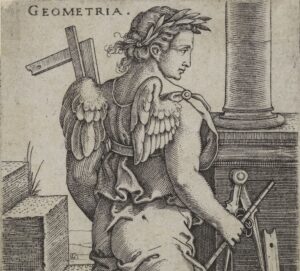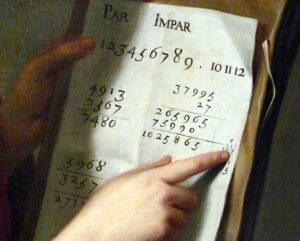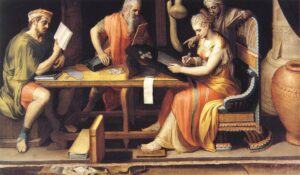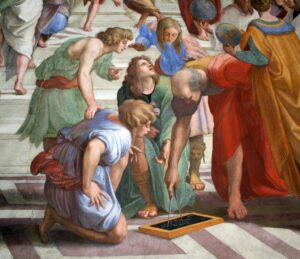
The Elements of the Cosmos
The main focus was not mathematical algorithms and not proficiency in calculation, but rather how we can accurately speak of the real, physical Creation.

The main focus was not mathematical algorithms and not proficiency in calculation, but rather how we can accurately speak of the real, physical Creation.

Astronomy pulls our gaze away from ourselves and out to the entirety of God’s creation.

This was an exciting new step in mathematics, but it didn’t come without a cost. As with any mathematical thought, the philosophy of mathematicians needs to be considered.

Ever since the Greeks, mathematicians interested in the nature of the world have invented new ways to speak of arithmetical ideas.

Thanks to Boethius and those who built upon what he began, we have access to a rich collection of classical mathematical works in arithmetic, geometry, music, and astronomy.

Number is inherent in the way Christ holds the universe together, so to know what numbers are (not just how to use them or why to use them) is imperative for a Christian mathematics education.

Mathematicians of the past see numbers in unique ways, and this is a significant benefit of reading math primary texts and bringing their ideas into classrooms and curricula.

We teach math because it truly describes many of the ways our loving God holds the universe together.

The reason required to do math and geometry well is the same reason our minds rightly use when, equipped with the Word of God, we need to think deeply about philosophical and theological issues in our lives.

Elements seems to be solely concerned with teaching the “what” and not the “how.” It shows the logic behind things like triangles and circles, lets you get to know them well, and helps you understand the logic in them.